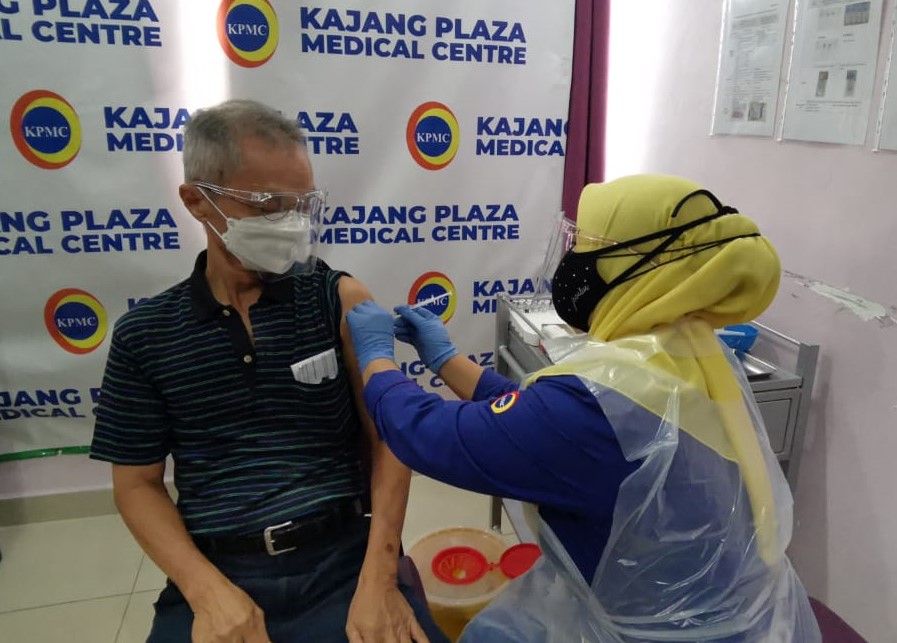KUALA LUMPUR, Feb 10 – The Ministry of Health (MOH) today rebutted Pharmaniaga Bhd’s statement that a Pfizer booster for Sinovac recipients is less effective against the Omicron coronavirus variant.
Pharmaniaga, which distributes Sinovac’s Covid-19 vaccine, said in a statement yesterday, based on a Reuters report, that a study by Yale University and the Dominican Republic published last December found that two Sinovac vaccine doses plus a Pfizer-BioNTech booster produced lower neutralising antibody levels against Omicron compared to Delta and the ancestral coronavirus.
However, Pharmaniaga’s statement omitted the fact that the Yale-Dominican Republic study did not compare Pfizer and Sinovac boosters for double-vaccinated Sinovac recipients; the research only looked at the effectiveness of a Pfizer booster on Sinovac recipients against the ancestral virus, and the Delta and Omicron variants.
The Malaysian pharmaceutical company also failed to mention that one of the authors of the study, Prof Akiko Iwasaki, had said two booster doses may be required for Sinovac recipients to get sufficient protection against Omicron. Her tweet was mentioned in the Reuters article itself that Pharmaniaga had based its statement on.
The Yale-Dominican Republic study found that even with a Pfizer booster after two Sinovac doses, protection against Omicron was only slightly better than with a two-dose mRNA vaccine. Two Sinovac vaccine doses alone showed no detectable neutralising antibodies against the highly infectious variant.
While omitting crucial context of the Yale-Dominican Republic study, Pharmaniaga’s statement cited another unrelated study, published by vaccine developer Sinovac Biotech, that found three Sinovac vaccine doses were more effective than two against Omicron.
“With reference to the media statement dated 9 February 2022 by Pharmaniaga Berhad regarding the lower effectiveness of heterologous boosting for Sinovac primary vaccination recipients against Omicron, the Ministry of Health Malaysia wishes to state that the prevailing facts and evidence are misrepresented,” said the Institute for Clinical Research (ICR), which is under MOH, in a statement today.
ICR director Dr Kalai Peariasamy tweeted that global and Malaysian data consistently show that a Pfizer or AstraZeneca booster after two Sinovac vaccine doses is more effective than a third dose of the inactivated vaccine, especially against Omicron.
“And despite a 3rd dose of Sinovac, levels of ‘neutralising’ antibodies tend to remain low.”
Besides explaining that the Yale-Dominican Republic study did not compare heterologous and homologous Covid-19 booster vaccination, the ICR highlighted four other studies, including its own Recovam research, that found higher effectiveness from mix-and-match inoculation than with three Sinovac jabs.
The ICR cited a Hong Kong study published last month in science journal Nature that found a Pfizer booster for double-vaccinated Sinovac recipients improved protection against Omicron, but a third Sinovac dose failed to produce adequate levels of neutralising antibodies against the variant in most recipients.
The ICR also highlighted a Brazil study published on February 5 in medical journal The Lancet that found a vaccine booster of either AstraZeneca-Oxford, Johnson & Johnson, or Pfizer for double-vaccinated Sinovac recipients produced much stronger immune responses against both the Delta and Omicron variants than a third Sinovac dose.
The MOH research institute further cited a real-world study in Chile on 11.2 million people published last month that found a Pfizer booster on double-jabbed Sinovac recipients was 96.5 per cent effective against symptomatic Covid-19, followed by 93.2 per cent for an AstraZeneca booster and 78.8 per cent for a Sinovac booster.
“The observed effectiveness against hospitalisation, ICU (intensive care unit) admission and Covid-19 related deaths were also higher for heterologous boosters (Pfizer, AstraZeneca) than homologous booster (Sinovac),” said ICR in its statement.
ICR’s own Recovam real-world study in Malaysia, based on 13 million people who received Pfizer and Sinovac primary vaccination, showed that three vaccine doses were at least 90 per cent less likely to be infected with Covid-19 than with two doses, according to data from November 21 last year to January 7 this year.
“Among Sinovac recipients, a heterologous booster (Sinovac primary vaccination, followed by a Pfizer booster) offered greater protection against infection than a homologous booster dose (three doses of Sinovac),” ICR said in its statement today.
The Recovam study showed 94 per cent lower risk of contracting Covid-19 with a Pfizer booster for Sinovac recipients compared to those who received two Pfizer doses. Three Sinovac doses yielded a 92 per cent lower risk of Covid-19 infection than two Pfizer doses.
People inoculated with two Sinovac doses have a 76 per cent higher risk of Covid-19 infection than those with two Pfizer jabs. Three doses of the mRNA vaccine yield 99 per cent lower risk of Covid-19 infection than two Pfizer doses.
“In line with emerging evidence and the ongoing Omicron wave, the Ministry of Health Malaysia continues to recommend Pfizer or AstraZeneca as the preferred booster for Sinovac vaccine recipients,” ICR concluded.








